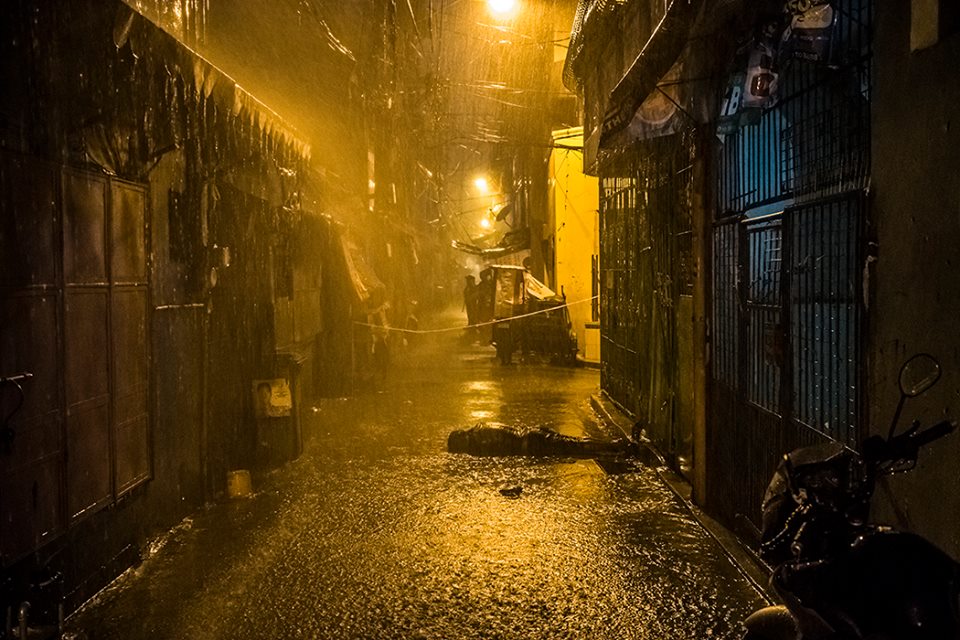New York Times lensman bags Pulitzer for PH drug war coverage

The body of a murder victim lies face down in an alley in the Philippines. This photo, along with others taken during a coverage on the Philippine’s war on drugs, won the Pulitzer Prize for Daniel Berehulak of the New York Times. DANIEL BEREHULAK / NEW YORK TIMES
A freelance photographer of the New York Times has won the prestigious Pulitzer Prize for his coverage of President Rodrigo Duterte’s “brutal” war on drugs.
Australian photojournalist Daniel Berehulak was awarded the 2017 Pulitzer Prize in Breaking News Photography for his picture in the multimedia story “They Are Slaughtering Us Like Animals.”
The feature, which was published early December last year, documented 57 victims of drug-related killings in the course of 35 days. It was also published in Filipino and Spanish.
“What I experienced in the Philippines felt like a new level of ruthlessness: police officers’ summarily shooting anyone suspected of dealing or even using drugs, vigilantes’ taking seriously Mr. Duterte’s call to “slaughter them all. He said in October, ‘You can expect 20,000 or 30,000 more,'” Berehulak was quoted as saying.
In its website, the Pulitzer Prize said it awarded Berehulak for “powerful storytelling through images published in The New York Times showing the callous disregard for human life in the Philippines brought about by a government assault on drug dealers and users.”
Article continues after this advertisementBerehulak’s work was originally entered under the Feature Photography category but was moved by the nominating jury to Breaking News Photography. He is entitled to a $15,000 prize.
Article continues after this advertisementThis is Berehulak’s second Pulitzer Prize after winning in Feature Photography in 2015 for his coverage of the Ebola epidemic in West Africa, also for The New York Times. In 2011, he was also a finalist for his coverage of the 2010 floods in Pakistan.
Berehulak, who is based in Mexico, has visited over 60 countries, has covered events including the Iraq and Afghan wars and the trial of Saddam Hussein.
Aside from Berehulak’s work, the NYT also won the Pulitzer Prizes for international reporting for “an investigative series on Russia’s covert projection of power” and feature writing for its story about a “veteran infantry combat Marine who was struggling with adjusting to life after serving in the war in Afghanistan.” CBB